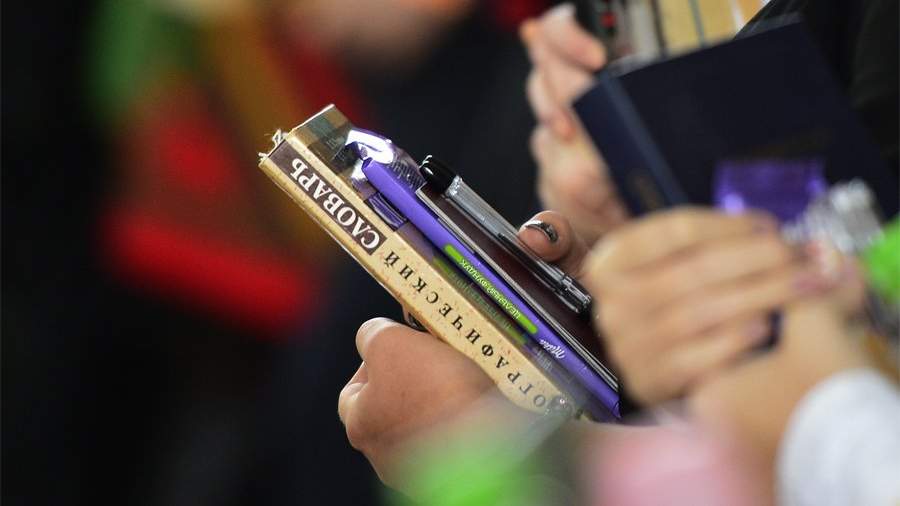The Ukrainian authorities allowed the use of feminitives when designating professions. Thus, they generated another wave of discussions on the appropriateness of such word usage, but this time in Russia. Izvestia found out when the words “author” and “psychologinya” will appear in academic dictionaries, and why feminists are becoming apologists for the androcentric approach.
Table Of Contents
All-Russian classifier of professions
The All-Russian Classifier of Occupations contains thousands of job titles and wage categories. Of these, in the feminine gender – at the level of statistical error.
Yes, a classifier is just a document for accountants and personnel officers, not related to the daily life of people.
But the female professions that can be found here are not among the prestigious ones: seamstress, nanny, pedicurist, and even a completely old-fashioned castellan.
Researcher at the Institute of Linguistics, Russian State University for the Humanities, author of the book “How are women called. Feminitives: history, structure, competition “Irina Fufaeva urges not to pay attention to the clerical language of the classifier.
– This is a very narrow, algorithmized sublanguage, the rules of which are completely optional and even undesirable when using the Russian language. Like any professional slang, it does not refer to the language of journalism, colloquialism, or the language of fiction. It is important to make this distinction. People do not understand that there is a bureaucratic sublanguage, in which there are no words teacher and artist. But they are not needed there…
However, society has taken a deep defensiveness and not only does not allow the mass appearance of feminitives in work books, but fights for their ban in the media. So, Deputy of the Legislative Assembly of the Leningrad Region Vladimir Petrov in March last year asked the ex-Minister of Culture of the Russian Federation Vladimir Medinsky to introduce fines “for deliberate distortion of the Russian language and the propaganda of illiteracy.” According to Petrov, this includes the use of non-classical feminitives. As an example, Petrov cited the use in a number of media of words such as “author”, “president”, “doctor”.
Feminitives are different
Feminitives have different status and are quite neutral. Words such as a teacher, a singer and an artist are completely familiar to a Russian person and do not even have the mark “colloquial speech” in dictionaries, Irina Fufaeva said. Some words, such as “hairdresser”, are labeled “spoken” in dictionaries. At the same time, this is not a vernacular and quite appropriate feminitive in communication.
– Several years ago, several feminitives appeared in the Russian language, formed from borrowed words ending in unstressed “op”, “er”, such as “author”, “blogger”, “director”, etc. With the help of the suffix “ka” the words “author” and “editor” appeared – it turned out that they irritate many people literally at the physiological level, – said the researcher.
Fufayeva explained this by the fact that there were no such words in the Russian language before.
– Words such as “author”, “director”, “blogger”, “master” – with unstressed “op” and “ep” – never had words with the suffix “ka”. “Pioneer” is the stressed last syllable, and “blogger” is unstressed. Literate people were naturally shockeds. We remember the usual word-formation models, we stumble upon something unusual, and almost a physiological reaction arises, – the linguist noted.
Speak Newspeak
The bulk of the new feminitives are borrowings from Slavic languages. Google translator, when trying to translate “author” from Russian into English, politely advises to choose the sourcem Ukrainian language. For “doctor” he offers Bulgarian, and for “ministry” – Macedonian.
For those who wish to support the trend and would like to artificially create a new feminitive, a special website “Feminizer” has existed for several years. It helps to find all possible word variations. For a politician, such alternatives are offered: “politician”, “politician”, “politician”.
Artificially created words very rarely take root, says Irina Fufaeva. In the early years of Soviet power, words were massively created, often in the form of abbreviations. Nowadays, few remain in use, often with a different meaning. For example, a collective farmer. Previously, this was the name given to members of collective farms, collective farms, and now (with a disapproving connotation) just villagers.
However, the advocates of new feminitives have every chance over time to introduce into the everyday life of the average Russian “authors”, “editors” and other newspeak, as George Orwell called such linguistic experiments in his dystopia “1984”.
– The habit factor works in the field of language, as in everyone else. If there is a group that persistently uses a word, then even if it sounds wild now, then it no longer sounds wild. All the roughness from habit is erased, says Fufayeva.
At the same time, there are no new feminitives in academic dictionaries yet, even with the mark “colloquial”. It can be expected that they will not become the norm for another five or seven years, at least. It remains to be seen whether the supporters of linguistic innovations will be persistent enough. So, in April last year, State Duma deputy Oksana Pushkina spoke out in support of feminitives. The parliamentarian advocated gender equality, including in the language environment, the Moscow city news agency reported.
Natalya Kiselnikova, Deputy Director for Scientific and Organizational Development of the Psychological Institute of the Russian Academy of Education, shares the values of feminism. In particular, she supports the use of feminitives, because she believes that it is important for a large group of people, makes them visible, strengthens their identity.
At the same time, she is not a supporter of aggressive reactions – both for and against feminitives.
– Let everyone speak as they see fit. Personally, I adhere to the position that if it is important for my interlocutor to be called an author, director, colleague, I will address her like that. In the end, we are going to meet people who ask, for example, to call them only Maria, and not Masha or Marusya? I understand the difference in these cases, but for me what unites them is more important – the subjective significance of the address, identification for the interlocutor. If a person and a relationship is important to me, I will listen to his or her wishes. As for general tendencies, it seems to me that time will put everything in its place anyway. Language reflects social processes, and changes in it inevitably occur, and significant ones are fixed, – said the psychologist.
Holivar
Natalia Kiselnikova noted that it is not important for her to address herself as a “psychologist” or “psychologist.”
– Most of my professional circle belongs to the academic environment, it is conservative, and innovations take a long and difficult time there. On the other hand, I communicate a lot with young specialists and specialists, practicing psychotherapists, and here we use feminitives quite actively. It seems natural to me to adapt the language to the environment in which you communicate, – said the specialist.
In her opinion, one of the reasons for rejecting feminitives may be a person’s suspicious attitude towards everything new in general.
– There are champions of the purity of the Russian language, and some of them show rejection not only towards feminitives, but also, for example, towards Anglicisms and jargonisms. There are people who, in principle, fear feminism as a movement and see it as a threat to established gender orders, and feminitives in this context are perceived as part of this threat…
Irina Fufaeva gave the example of the famous book lover and bibliographer, friend of Pushkin, Sergei Dmitrievich Poltoratsky. An aristocrat, a Westerner and a liberal, he spoke several languages. Nevertheless, in 1841 he wrote a letter to his friend Nikolai Putyata, in which he lists many, many borrowed words from magazines with which he is outraged. For example, he is not happy with words like civilization, debut, naive, patient and patient, which now seem completely natural to us.
– The era of thick magazines has come, the Field brothers began to publish. The diverse environment or landowners who sat in their remote villages did not speak fluent foreign languages. For them, they began to translate articles and borrow words. For that part of people who knew languages well, this, of course, was unacceptable. Because this is a confusion of languages. And for the bulk, on the contrary, it became part of the Russian language., – explains the linguist.
Language trap
Feminitives are feminine nouns that denote women, derived from the same root masculine nouns denoting men, and are paired to them, the definition from Wikipedia erroneously says.
– Feminitive is a term for a woman. But in practice, a decent proportion of the words in a woman’s name are not formed from the male correlate. So it was in the old days – a magician from the verb to enchant. Or a nurse – from the verb to sit. In Russian, there are opportunities to directly form feminitives, which denote the occupation of a woman, from some verb or noun, explains Fufayeva.
Thus, feminists themselves become apologists for the androcentric approach, when they strive to form feminitives from all words of the masculine grammatical gender.
For example, recently the word “healthy” (healthy lifestyle) came into the language. And there was a couple “zozhnitsa” and “zozhnitsa”. When comparing queries in Google, it turned out that the word “burner” appeared a little earlier, and it is more frequent than “burner”. Irina Fufaeva connects this with the fact that women are more engaged in fitness.
– The new word is formed on the basis of the old one with very little change in form. The suffix -nitsa is added to health. As in the 17th century there was a lacemaker – a woman who sells lace. This operation has already happened a thousand times in the language. A piece of meaning was added that this is a woman who is engaged in this object, the subject, we can do it like lace, like an anime. There are many words (ending) in -nitsa. Therefore, no one reacts violently, the linguist concludes.




